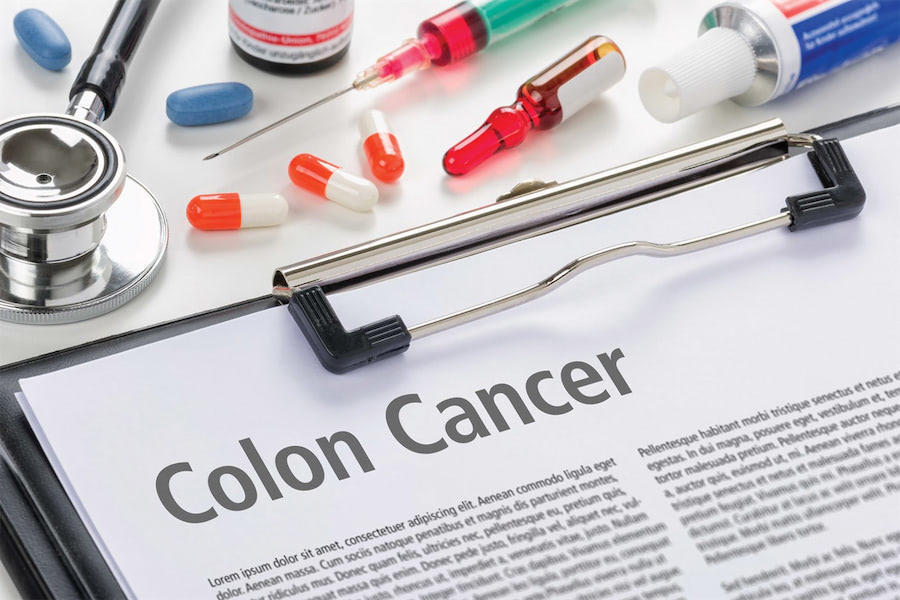Colon cancer is one of the most serious and life-threatening diseases facing adults today, yet many people remain unaware of the risks associated with it. At any given time, more than 1 million Americans are estimated to be living with colon cancer, making it an important health problem that cannot be overlooked. With early detection proving vital in treating and surviving this disease, understanding your risk factors for colon cancer is essential–and this blog post aims to equip you with everything you need to know about the condition. From what causes colon cancer to recognize its symptoms and possible treatments available, this comprehensive guide provides a full overview of all aspects related to colon cancer so that everyone can stay informed and proactive about their own health.
Types of Colon Cancer and Risk Factors
Colon cancer is an insidious and potentially life-threatening condition that arises when abnormal cells grow and spread in the large intestine. There are several types of colon cancer, each with its own causes and symptoms, including familial adenomatous polyposis (FAP), which is caused by a genetic mutation that predisposes individuals to develop thousands of polyps in their gut as they age. Other types include sporadic adenomatous polyps (SAP), which can be caused by dietary issues such as excessive red meat consumption, smoking, and heavy alcohol use; visceral metastasis, or the spread of cancer from another organ; the especially aggressive mucinous adenocarcinoma; and signet ring cell carcinomas. The risk factors for colon cancer include advancing age, a family history of the disease, certain dietary choices such as too much-processed food and red meat, smoking, obesity, and diabetes. By avoiding potential risk factors, one can greatly reduce their chance of developing this serious type of cancer.
Signs and Symptoms of Colon Cancer
Colon cancer is a serious and life-threatening illness, but it can be successfully treated if caught early. Knowing the signs and symptoms of colon cancer is essential for doing this. The most common symptom associated with colon cancer is a change in bowel habits, including diarrhea or constipation, bleeding from the rectum, or thinner stools. Unexplained or consistent abdominal pain or fatigue may also be potential warning signs of colon cancer, as well as unexplained weight loss. Having one or more of these symptoms does not always mean that you have cancer; however, it is important to have any suspicious signs properly evaluated by a doctor before deciding on the next steps.
Diagnosis, Staging, and Treatment Options
Colon cancer, caused primarily by lifestyle choices like unhealthy diets, is the second most common type of cancer among women and the third most common type among men. Symptoms often appear during the late stages of colon cancer, which can lead to delayed diagnosis and stunted treatment plans. After the patient is officially diagnosed through imaging and a biopsy, staging is conducted to identify how advanced cancer has become. Then, doctors can create a treatment plan forward with options like radiation therapy, surgery, or chemo.
Prevention Tips for Lowering Your Colon Cancer Risk
Colon cancer is one of the most common forms of cancer, and its causes and symptoms can vary from person to person. As such, it's important to practice certain preventative measures to keep your risk as low as possible. First, introducing more fiber into your diet is a great way to reduce colon cancer risk. Also, it’s important to increase physical activity, such as walking or jogging, in order to maintain a healthy body weight, which is an effective way to lower colon cancer risk. Other methods include regularly checking for any unusual changes in your stool or abdominal area that could indicate a problem, quitting smoking, and drinking alcohol in moderation (if at all). Overall, following healthier lifestyle practices helps reduce the potential of developing colon cancer while keeping your body healthy and strong.
Common Questions About Colon Cancer
Colon cancer is a type of disease that affects the digestive system and starts in the colon. It can cause several uncomfortable and potentially dangerous symptoms, but fortunately, it is one of the most treatable forms of cancer. Understanding colon cancer is important for prevention, early detection, and successful treatment – so here are some of the common questions about this disease. What causes colon cancer? While lifestyle choices can be a contributing factor, possible causes of colon cancer include genetics, carcinogenic substances from an unhealthy diet, age, and chronic inflammation of the digestive tract. What are the symptoms? Since its early stages may be asymptomatic, knowing about potential signs such as fatigue and stomach pains can help identify when to seek medical attention. Other important questions include: How is it detected? How can you prevent it? And how is it treated? The answers to these questions will depend on individual cases; however, seeking professional advice as soon as possible is essential in order to obtain sufficient information and make responsible decisions.
Supporting Someone with Colon Cancer
Supporting someone with colon cancer can be a difficult but rewarding experience. It is important to understand what causes colon cancer and the symptoms that accompany it. Colon cancer typically starts as polyps in the lining of the large intestine, forming over a period of years. Symptoms of colon cancer include abdominal pain, fatigue, changes in bowel habits such as constipation or diarrhea, rectal bleeding, seen as bright red blood on the stool or toilet paper, bloating, or feeling full quickly after eating. The best way to show your love and dedication to somebody facing this illness is by showing patience, listening without judgment, and helping to relieve some of their stress where possible.

